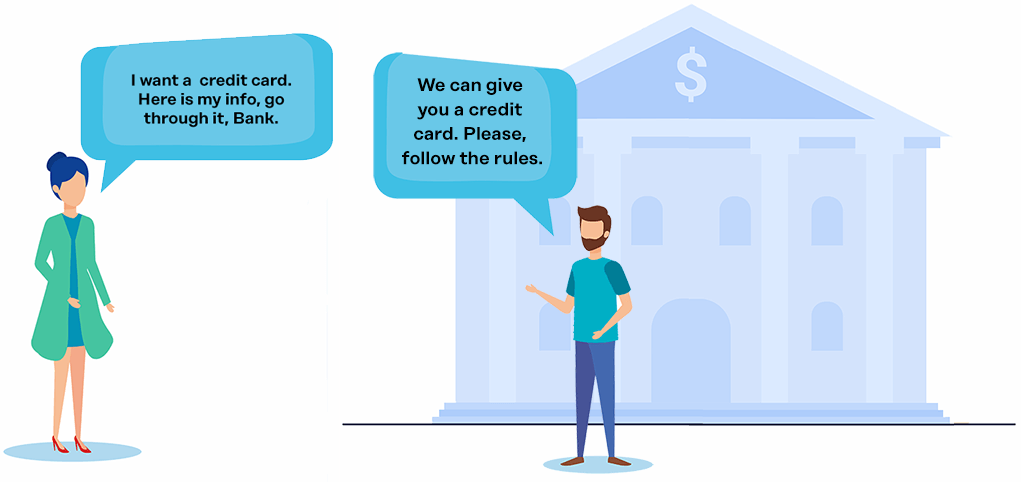We Stand With Ukraine! 5% of our profits goes to support the Brotherhood of Kind Hearts
How Does Credit Card Processing Work?
Here's a quick breakdown of the life cycle of a credit card transaction.
Using a string of numbers and your identity to move some of your money to someone else involves soooo many steps and arbitrary concepts that it's best if we use drawings with captions.
Let's start at the beginning: A consumer applies for a credit card and is approved. With this approval, an account is established with the card-issuing bank.

The Consumer receives their new credit card and goes shopping. The Consumer uses their credit card to make a purchase with the Seller.
The Consumer swipes their card, or taps their card, or enters their card information on the Seller's e-commerce website, or otherwise transmits the data necessary to initiate a purchase transaction.

The digital portal where card information is entered is called the payment gateway.
From the payment gateway, the card information is transmitted to the Seller's acquiring bank, which runs the information through the card network.
(That's where Visa/MC come in — these financial giants operate and maintain the card networks.)
The card network transmits the information to the card-issuing bank, which will assess the Consumer's account and authorize or decline a transaction based on factors like the amount of money the Consumer has available in their card account.
If the transaction is authorized, the card-issuing bank deposits the amount of the purchase from the Consumer's credit account into the Seller's merchant account; this is also done via the card network.
The Seller's acquiring bank then deposits these funds into the Seller's regular business bank account after the settlement process is complete. It is then the Consumer's responsibility to pay the amount of that purchase back to the card-issuing bank. It all starts and ends with the Consumer.
When we pay our credit card bill, aren't we just paying Visa or MasterCard?
No. You are making a payment to the bank that issued your credit card. Visa, MasterCard, American Express and Discover are not banks and do not issue credit cards.
What do you mean by "card-issuing bank"? Isn't a credit card just a Visa / MasterCard / American Express / Discover card?
One of the most important aspects of a credit card transaction is the secure transmission of account information. Without these security measures, the credit card industry could not exist.*
The card-issuing bank is not Visa, MasterCard, etc. It's a bank like Chase, or Bank of America, or Barclay's. The brands we know as Visa, MasterCard, etc. form the governing body of bank card associations and serve as payment processors operating and maintaining a global processing network that securely transmits financial account data — the key word being secure.
Where does the money used by the card-issuing bank come from?
It's money the bank has on hand, the same as if you went to your bank and asked for a loan. Basically, the card-issuing bank acts as a lender who deposits money in the Seller's merchant account on behalf of the Consumer.
*This was attempted early in credit card history and failed miserably. You can find out more about it here.